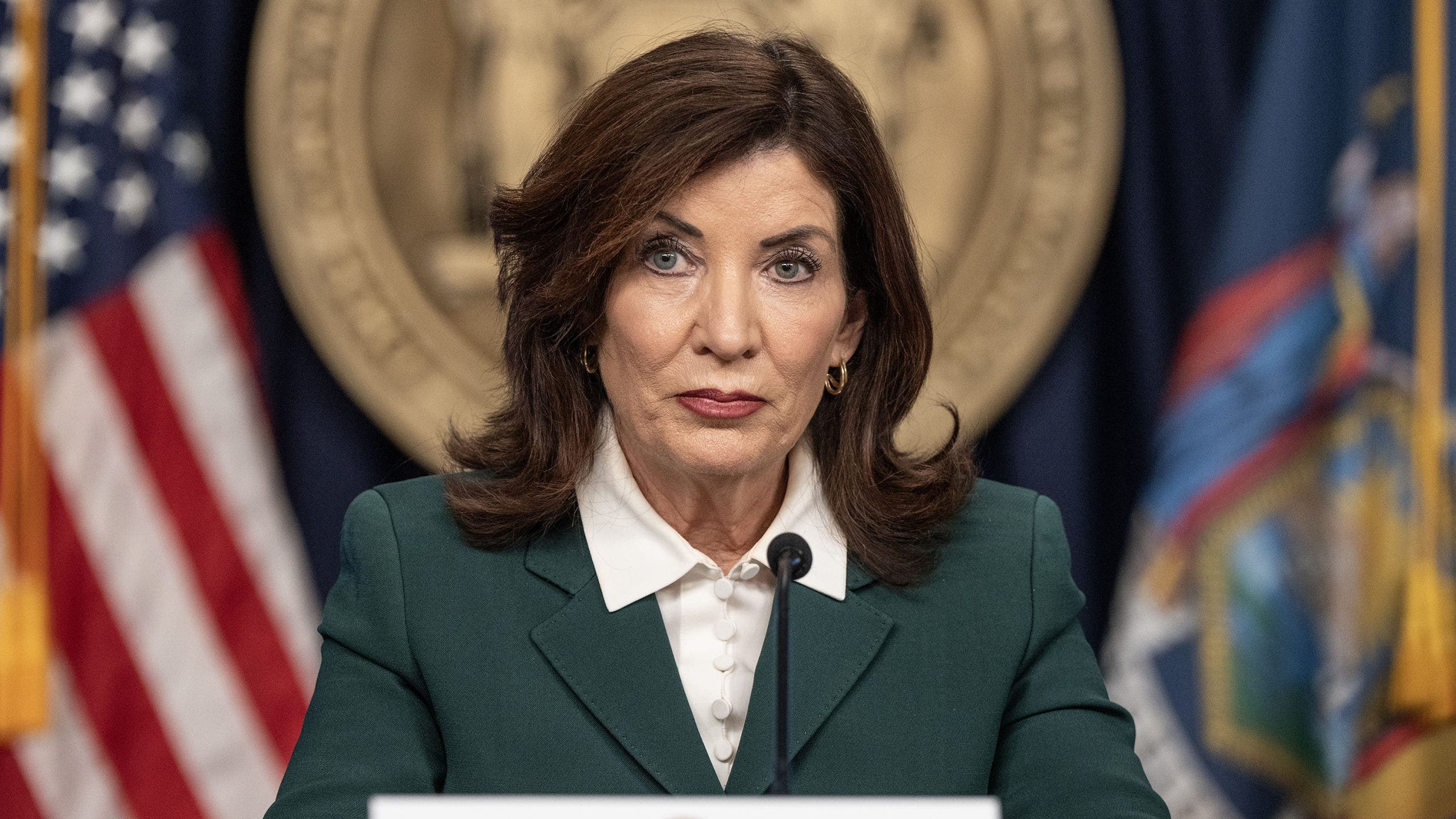Hochul signs bill that will charge energy firms $75B, but critics say customers will really foot the tab

Governor Kathy Hochul of New York has recently signed into law the Climate Change Superfund Act, a groundbreaking measure that will charge oil and gas firms an estimated $75 billion over the next 25 years. The bill, sponsored by Senator Liz Krueger and Assembly Member Jeffrey Dinowitz, is modeled on federal and state superfund laws that charge firms accused of pollution.
Environmental groups have praised the legislation, seeing it as a crucial step towards holding major polluters accountable for their role in the climate crisis. On the other hand, business groups have raised concerns, arguing that the bill will increase the cost of doing business in the state and ultimately lead to higher energy prices for consumers.
Senator Krueger, a key proponent of the bill, emphasized the importance of making major polluters pay their fair share to help New Yorkers cope with the consequences of climate change. She highlighted the state’s responsibility to take action and ensure that polluting companies bear the financial burden for their actions.
Critics of the legislation have expressed doubts about its practicality and raised concerns about potential legal challenges. Ken Pokalsky, vice president of the New York State Business Council, questioned the feasibility of the bill and suggested that it could lead to increased costs for households and businesses.
Despite the criticism, Governor Hochul has hailed the Climate Change Superfund Act as a victory for the state’s citizens. She emphasized that the funds collected from major polluters will be used for climate mitigation efforts to address the impacts of the climate crisis on New Yorkers.
The bill will impose significant assessments on both domestic and foreign energy producers, with major companies like Saudi Aramco, Pemex, and Lukoil facing substantial yearly charges. The assessments are based on estimated CO2 emissions, with 38 firms identified as carbon polluters set to be held accountable.
However, concerns have been raised about the collection of assessments from foreign firms and the potential impact on consumers. With the implementation of the Climate Change Superfund Act alongside other measures like congestion pricing and the pending ‘cap and invest’ rule, consumer advocacy groups are worried about the additional financial burden placed on commuters and consumers.
As the state of New York takes a bold step towards addressing climate change and holding major polluters accountable, the implementation of the Climate Change Superfund Act will undoubtedly have far-reaching implications for the energy industry, consumers, and the fight against climate change.




